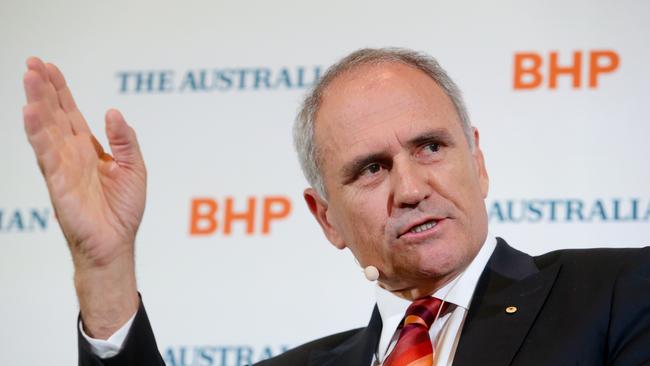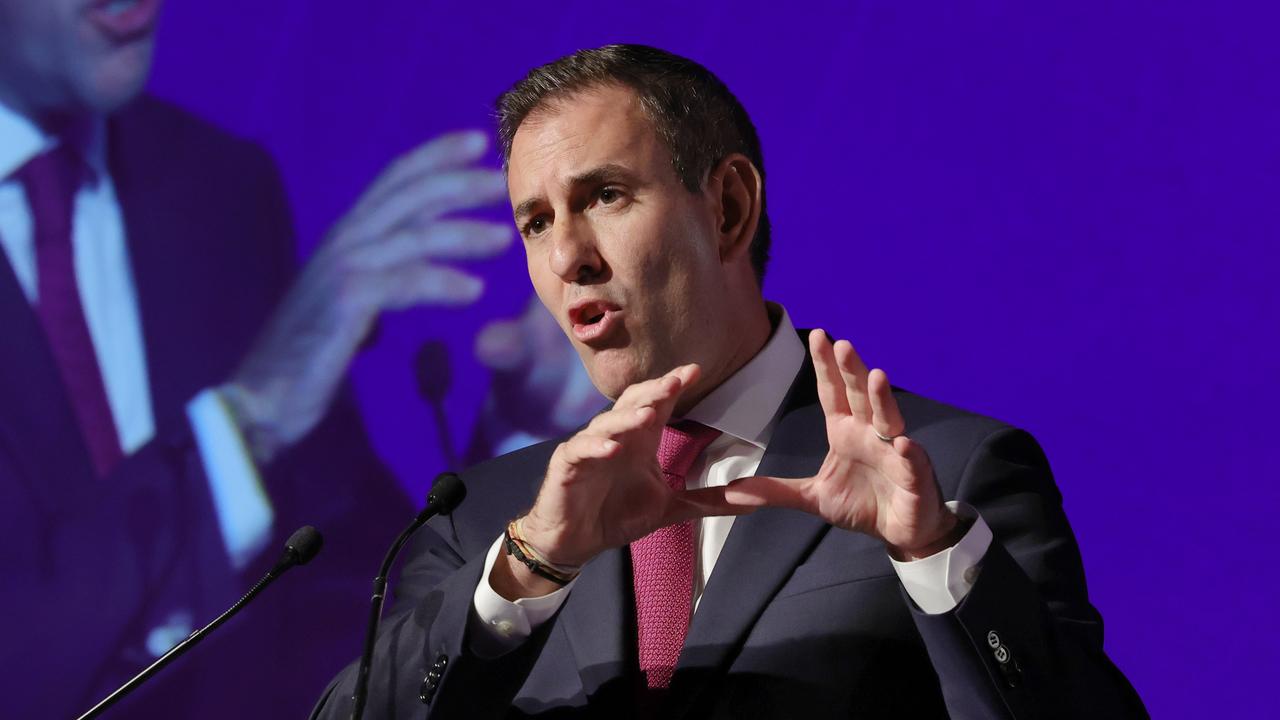Nation will bounce back with a strong recovery, tips ex-Treasury secretary
The architect of the nation’s response to the 2008 global financial crisis says Australians can take comfort from history.

The architect of the nation’s response to the 2008 global financial crisis says Australians can take comfort from history, because sharp economic shocks like the one triggered by the coronavirus have always heralded periods of robust growth.
But former Treasury secretary Ken Henry also said the sharp downturn could result in entrenched unemployment for some.
“One thing we do know is that a shock is always followed by a period of strong growth, including employment growth,” Dr Henry told The Weekend Australian.
“It’s also a sad reality that some of the people losing their jobs now will never work again.
“That’s how recessions work and how it played out in our last recession in the 1990s — people lose their connections with employers and colleagues, and they find it hard to compete against newly skilled entrants to the job market.”
Dr Henry dismisses the market’s daily gyrations as “traders doing their jobs”, and says it should not be a guide to future economic performance.
Many senior business figures The Weekend Australian spoke to highlighted that when the coronavirus is tamed, the $1.9 trillion Australian economy will inevitably spring back to life, albeit a little bent out of shape by the experience. Some noted it would lead to more flexibility in the workplace, which would cushion the king-hit to the economy.
Investment bank UBS on Friday again slashed its forecast of GDP for the June quarter to a 10 per cent contraction — the worst on record.
Annual GDP is forecast to shrink by 6.1 per cent, a further reduction from UBS’s previous forecast of a 5.4 per cent contraction and the nation’s worst performance since World War II. Unemployment, meanwhile, was likely to peak at 10.5 per cent, similar to past recessions.
Goldman Sachs has forecast the economy will shrink by 6 per cent in 2020, with unemployment spiking to 8.5 per cent.
Rod Eddington, who is on the board of the Pratt family’s Visy and on Friday formally joined the board of Japanese food conglomerate Kirin — which owns Lion in Australia, of which Sir Rod is chairman — says the current situation feels “more like 9/11 than SARS” for the aviation sector.
Sir Rod, a former chief executive of British Airways, Cathay Pacific and Ansett, said the greatest concern for the nation was the reduction in airfreight capacity between Australia and Asia coming from the massive cancellation of passenger services into the region.
Before the onset of the coronavirus pandemic, Cathay Pacific, for example, flew 50 tonnes of airfreight between Melbourne and Hong Kong in the cargo hold of passenger services.
Much of this was fresh Australian food products, including chilled meat and seafood.
“This is a great opportunity for Australian producers into the north Asian markets in particular. The demand for high-quality protein in north Asia will be stronger than ever. We are beginning to see that in China,’’ Sir Rod said.
“But how do you get the product to market?”
Sir Rod said businesses moving quickly and substantively to respond to the current crisis would be more likely to survive.
“What business leaders are doing now is husbanding cash and facilities that can be called upon. Anthony Pratt said that cash is king, there is no better way to put it than that,” he said.
“The other line that is true, albeit brutal, is go hard and go early. So if you have to make changes, go hard and early.”
Coca-Cola Amatil’s group managing director Alison Watkins said business needed more help from government to get through the current crisis.
She said shifting monthly tax payments to quarterly would ease cash flow pressures on all businesses and inject another $10bn into the economy.
She said employers also needed the flexibility to reduce employee working hours and the ability to force staff to take leave as they tried to maintain their workforce.
“These are targeted measures that would help to keep our economy going and well-positioned to recover from the extraordinary events,” she said.
Ms Watkins said business understood that these were unprecedented times “with the ever-changing environment presenting extreme challenges for not only business but for society as a whole.
“We appreciate that the measures being put in place are necessary to slow down the spread of COVID-19 in our community and recognise these might go further if necessary,” she said.
But she said acknowledged the measures adopted by the national cabinet were “having an enormous impact on all Australians, including businesses and communities”.
For businesses both large and small this was creating “liquidity and cash flow problems”. She said employers wanted to maintain their workforce but also needed the flexibility to reduce hours and to be able to force employees to take leave.
Dr Henry said the policy challenges thrown up by the global pandemic were “very complicated”. “On the one hand, the government wants to keep the economy functioning, but on the other they want to close things down for health reasons,” he says.
“It’s really tricky, and not the sort of problem standard macroeconomic tools are designed to deal with.
“And the problem with closing things is that business is so interconnected that a supply shock can affect all sorts of activities, maybe even the entire economy.
“Random supply shocks could pop up all over the place, and some could take a while to flow through.”
AMP chairman and former financial system inquiry boss David Murray said the Morrison government had done a good job covering “every angle possible”.
“I’m pretty impressed with what’s come out so far, but I think the government should start planning now for the reconstruction because this thing is going to bounce back quite quickly,” Mr Murray said.
“Of course, there will be a lot of damage done in the meantime — people’s priorities and patterns of demand will change, companies will look more closely at diversity of their supply chains, and household incomes will be impaired.
“So it might take some time to get back where we were, but things should improve pretty quickly.”
ANU economics professor and former Reserve Bank board member Warwick McKibbin’s big policy idea to facilitate a recovery in the economy is a HECS-style, zero-interest loan to businesses and households.
“The idea is to maintain consumption levels and the payback only starts when the economy recovers,” Dr McKibbin said. The administrative cost of the scheme would be minor, because everyone had a tax file number and there would be no need to build a large bureaucracy. While the downside was an extra debt burden ahead of the economic recovery, Dr McKibbin said he pitched the idea a week ago to Scott Morrison’s office. “The reception was positive,” he said.
Dr Henry said a program of microeconomic reform before the 1990s recession boosted growth coming out of the downturn because it compressed a decade of structural adjustment into a couple of years.
This time, the nation had not done the hard yards on reform.
However, a similar phenomenon could take place with deeper immersion in the digital economy.
“We’ve been talking about working from home for a decade but now we’re actually doing it,” he said. “One of the things we are discovering is just how flexible and adaptable we really are.”



To join the conversation, please log in. Don't have an account? Register
Join the conversation, you are commenting as Logout